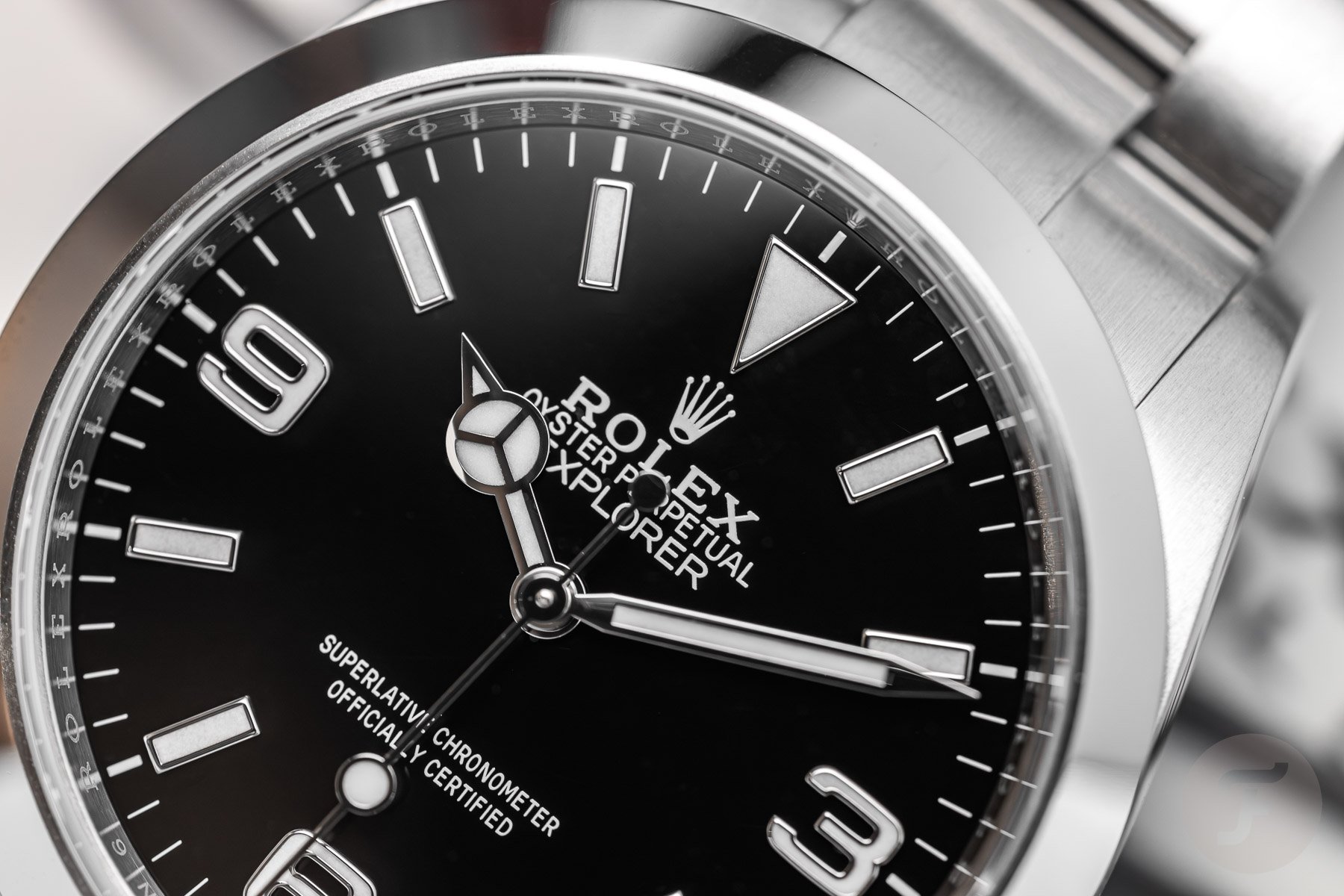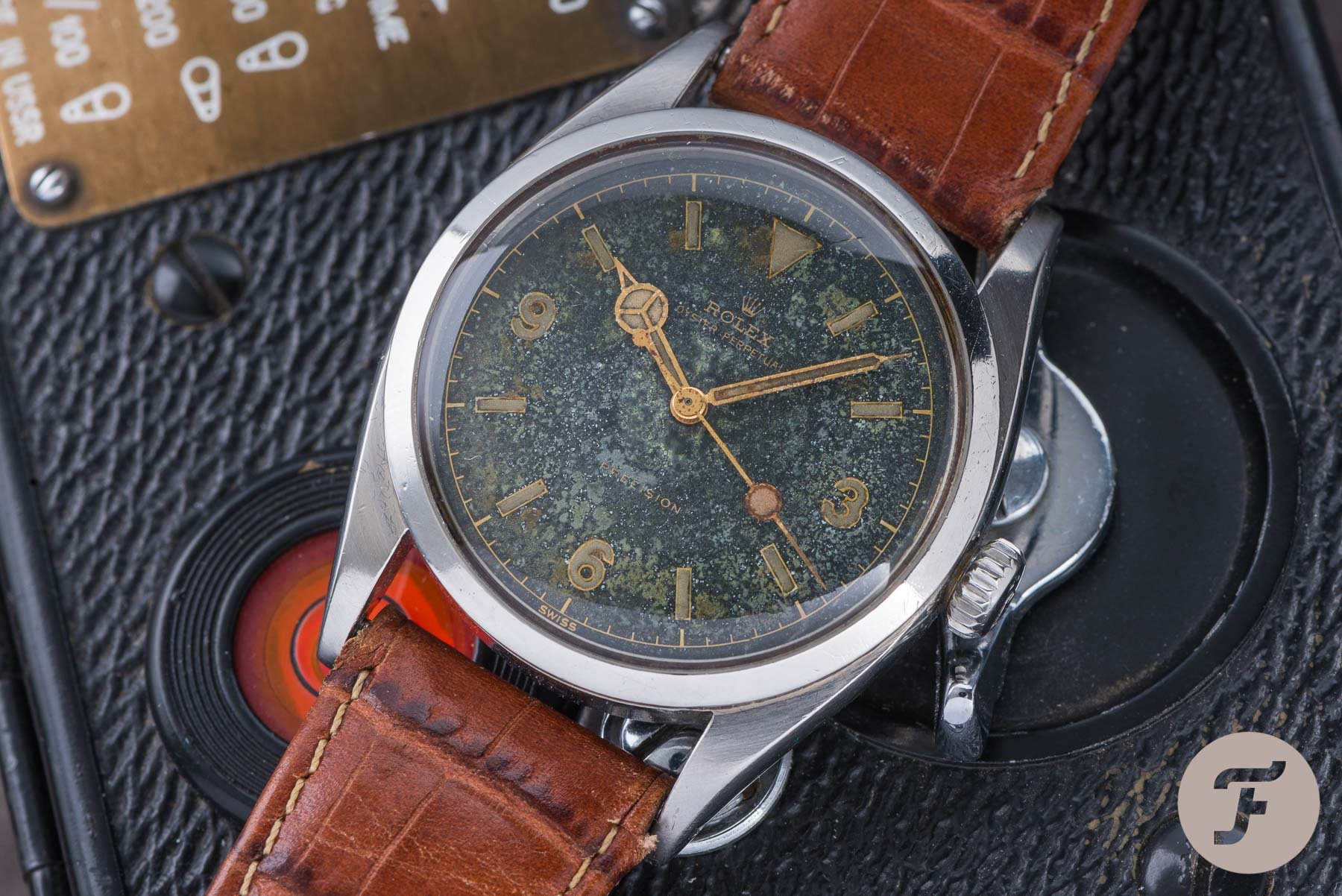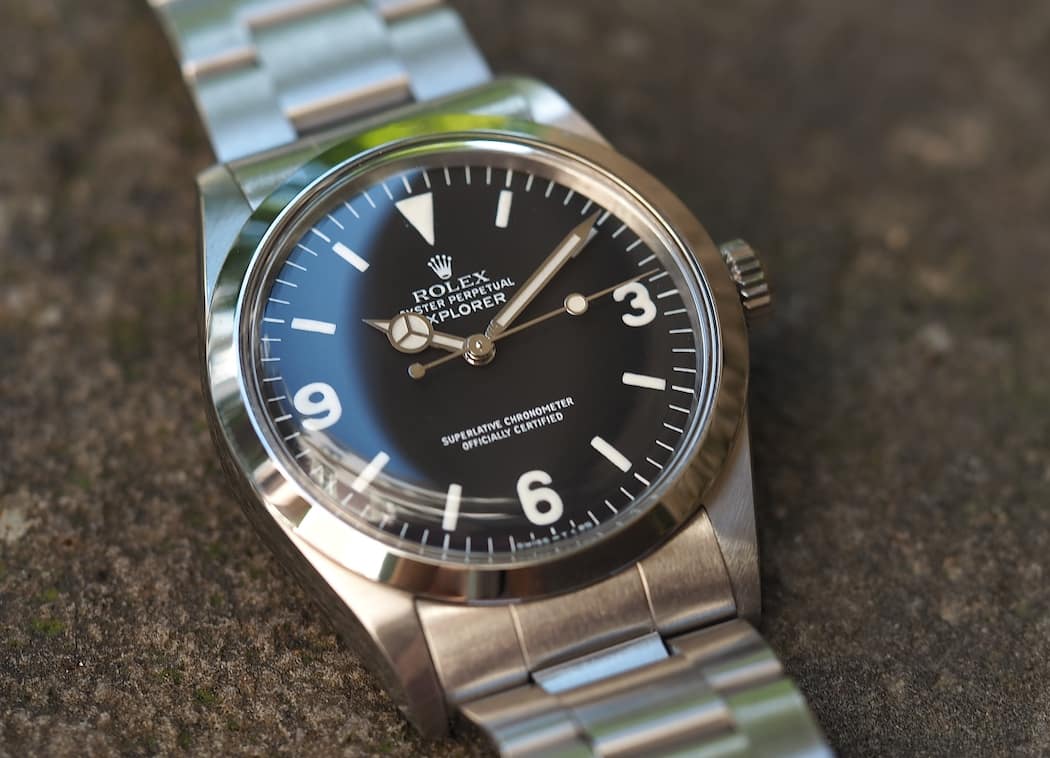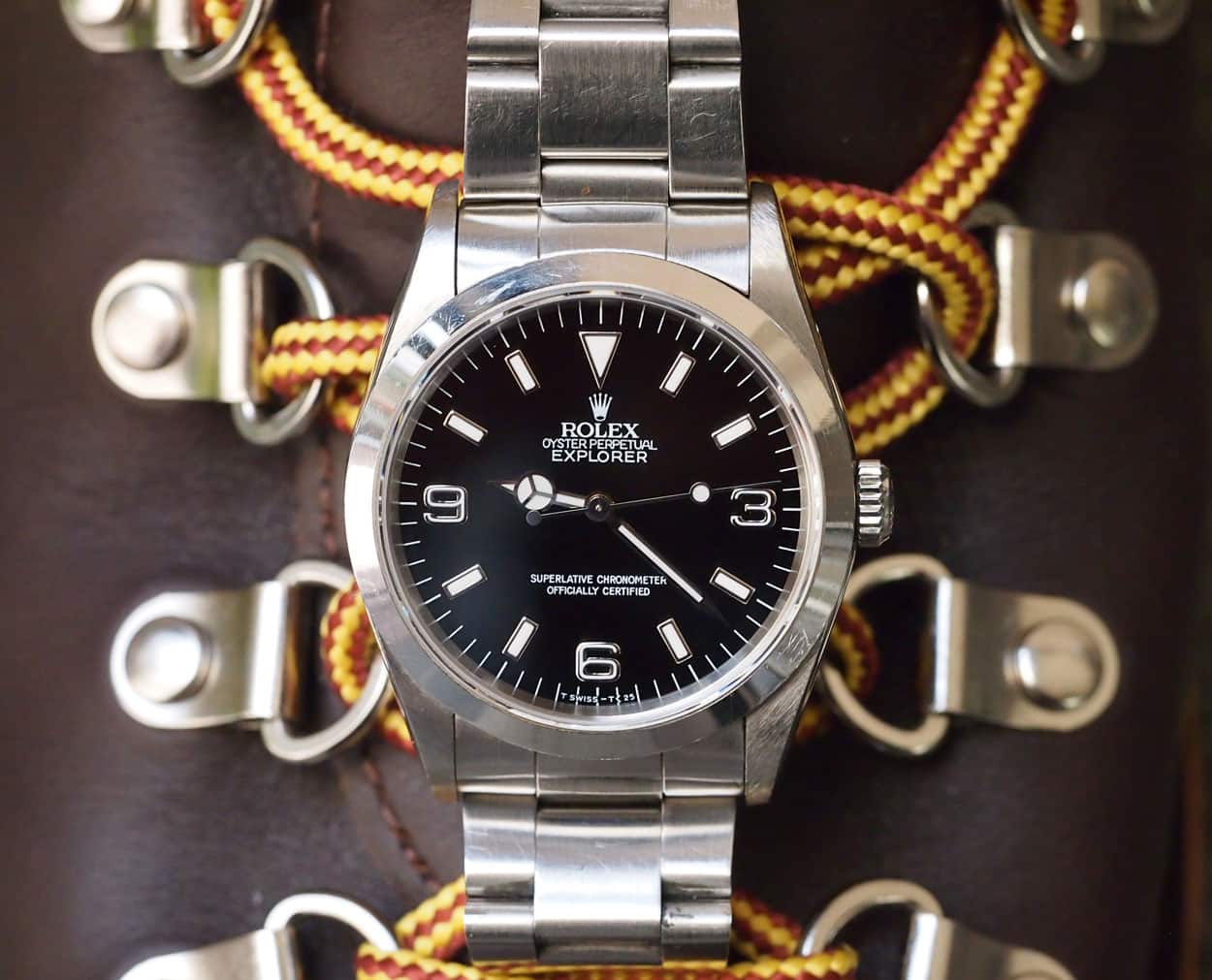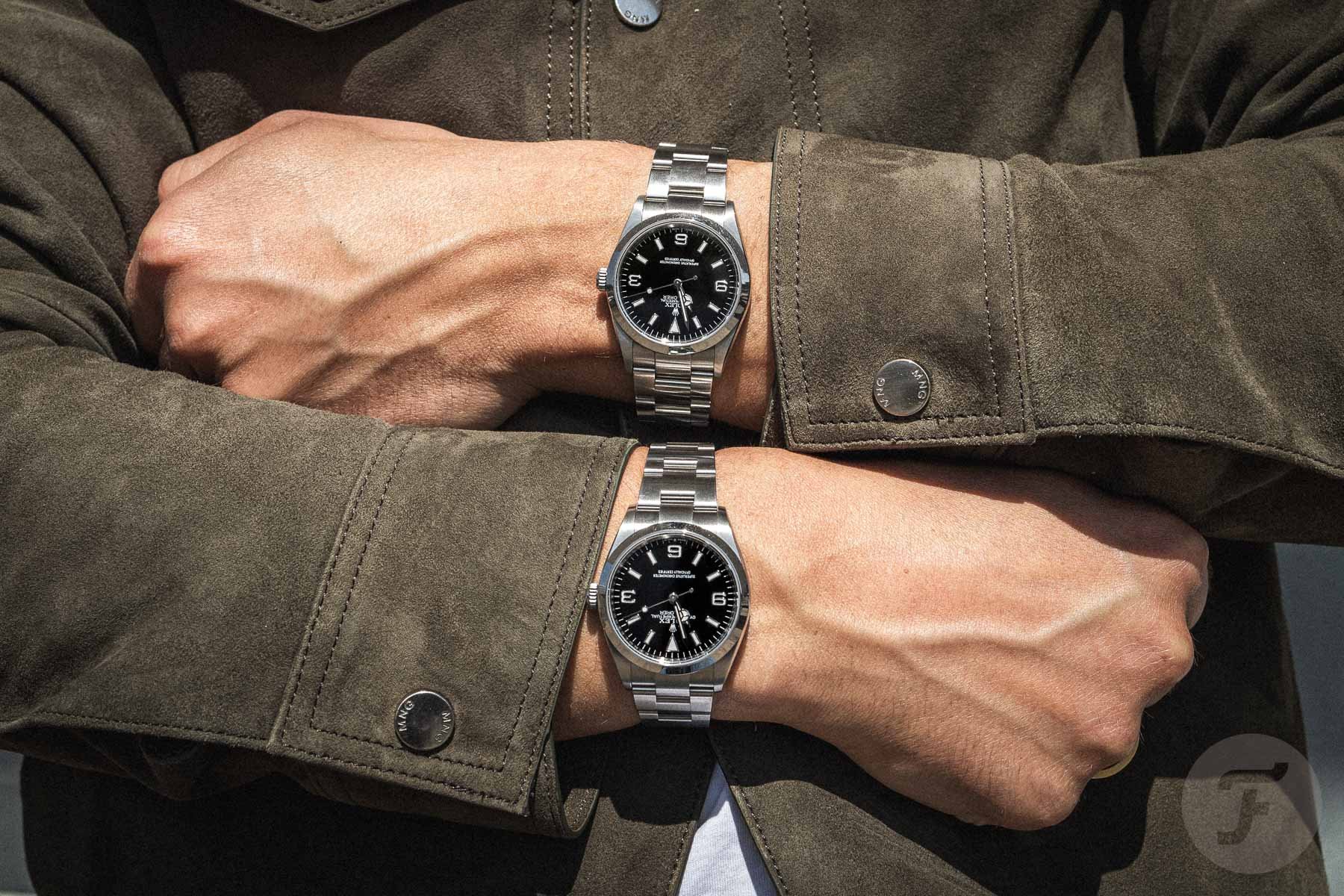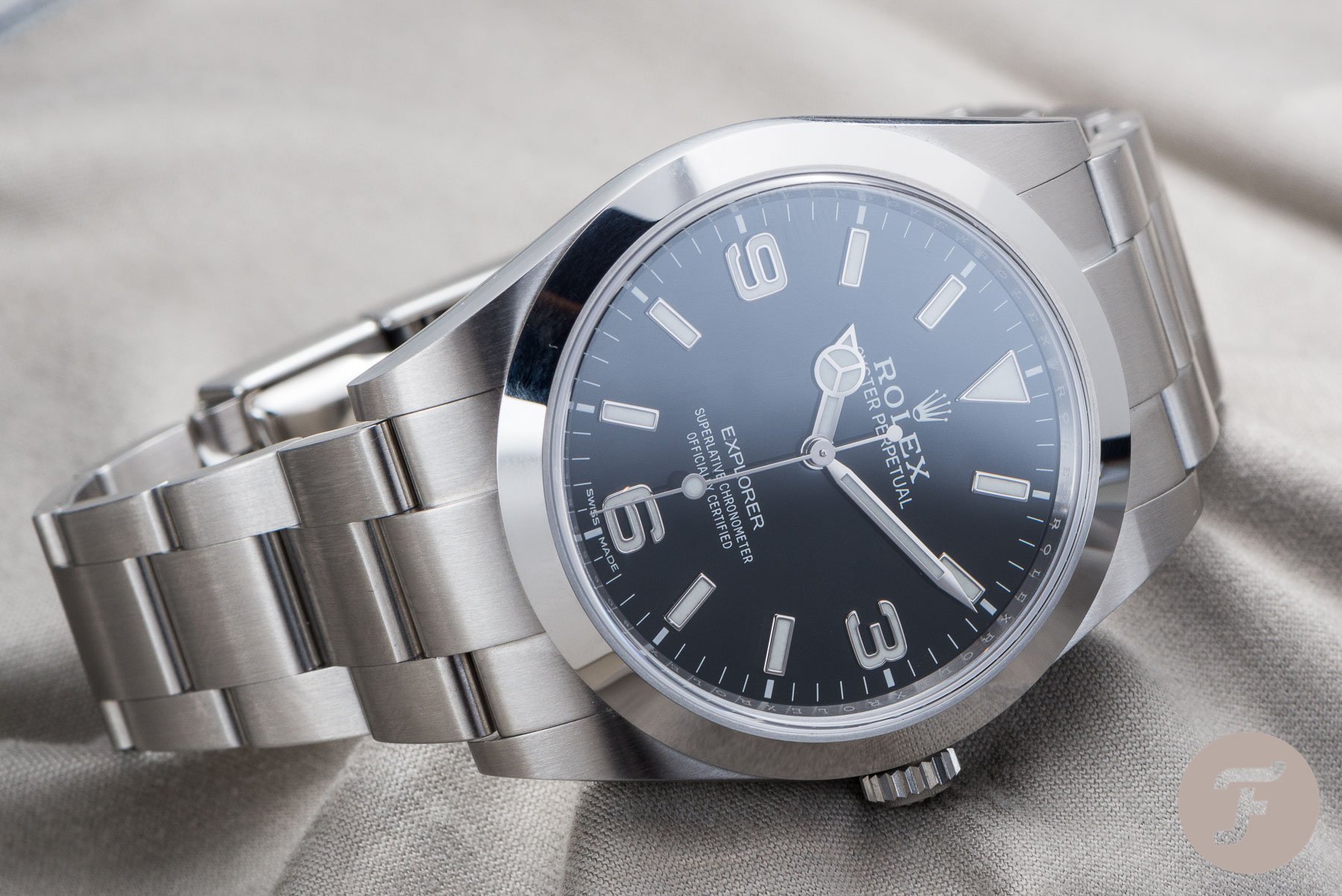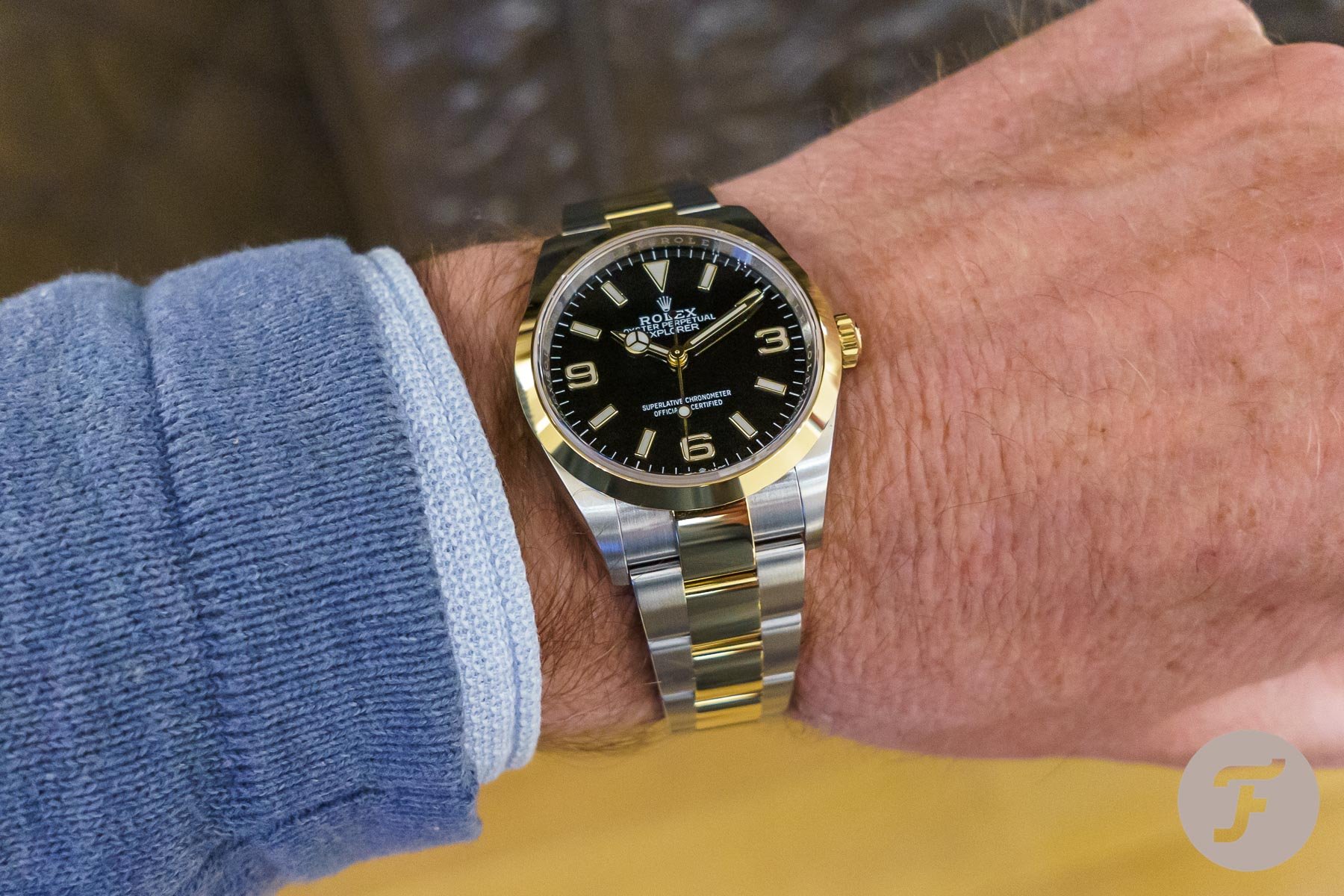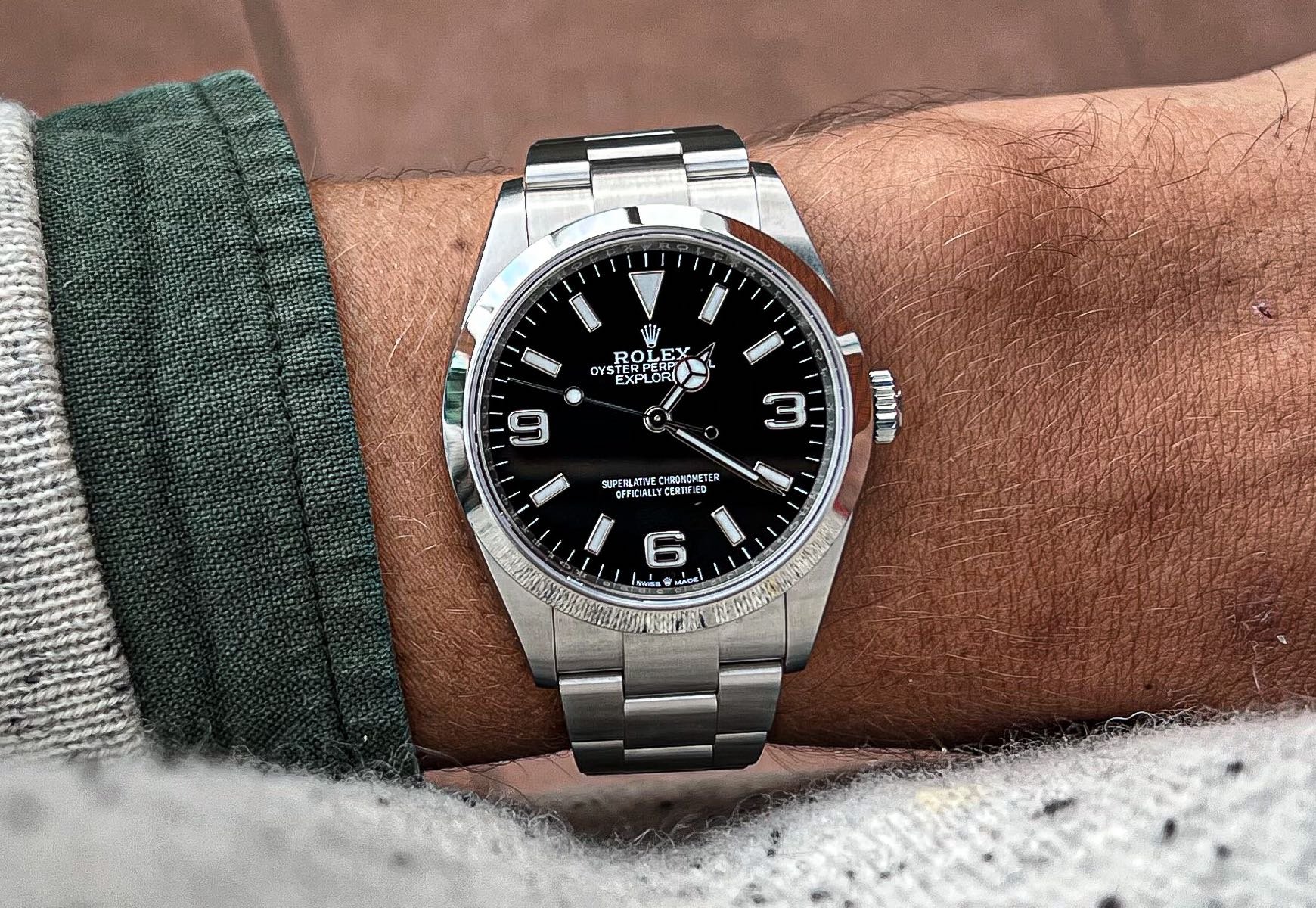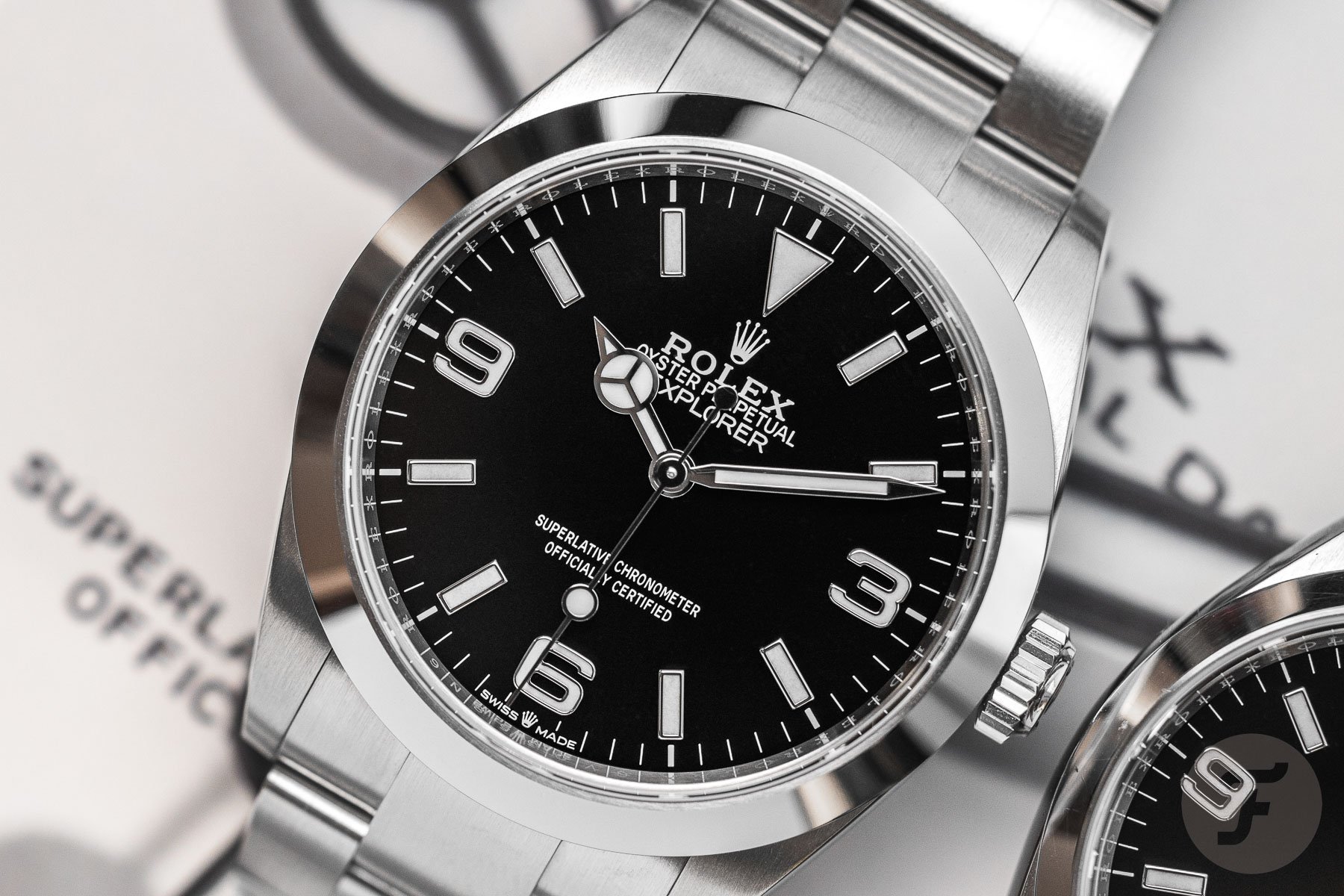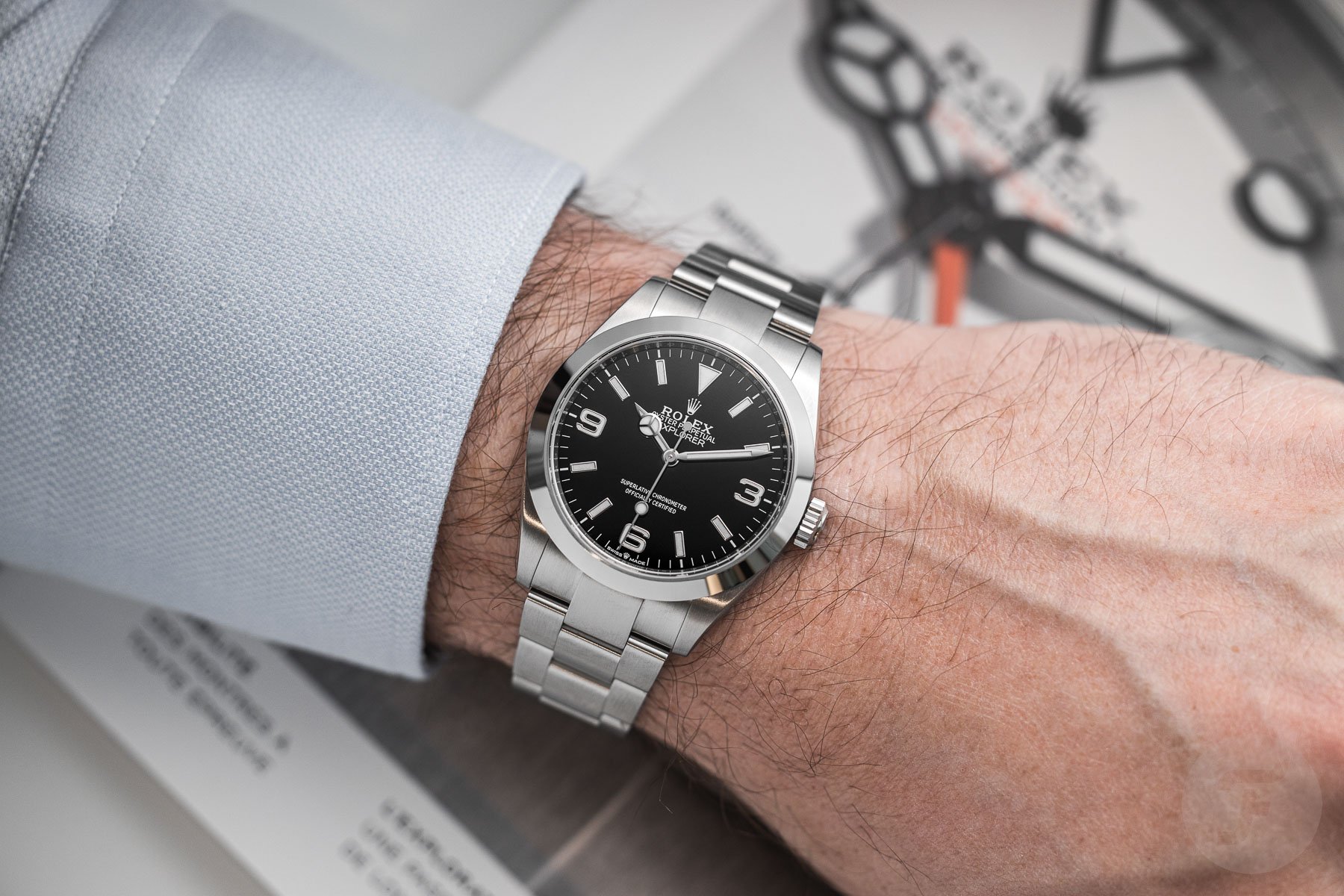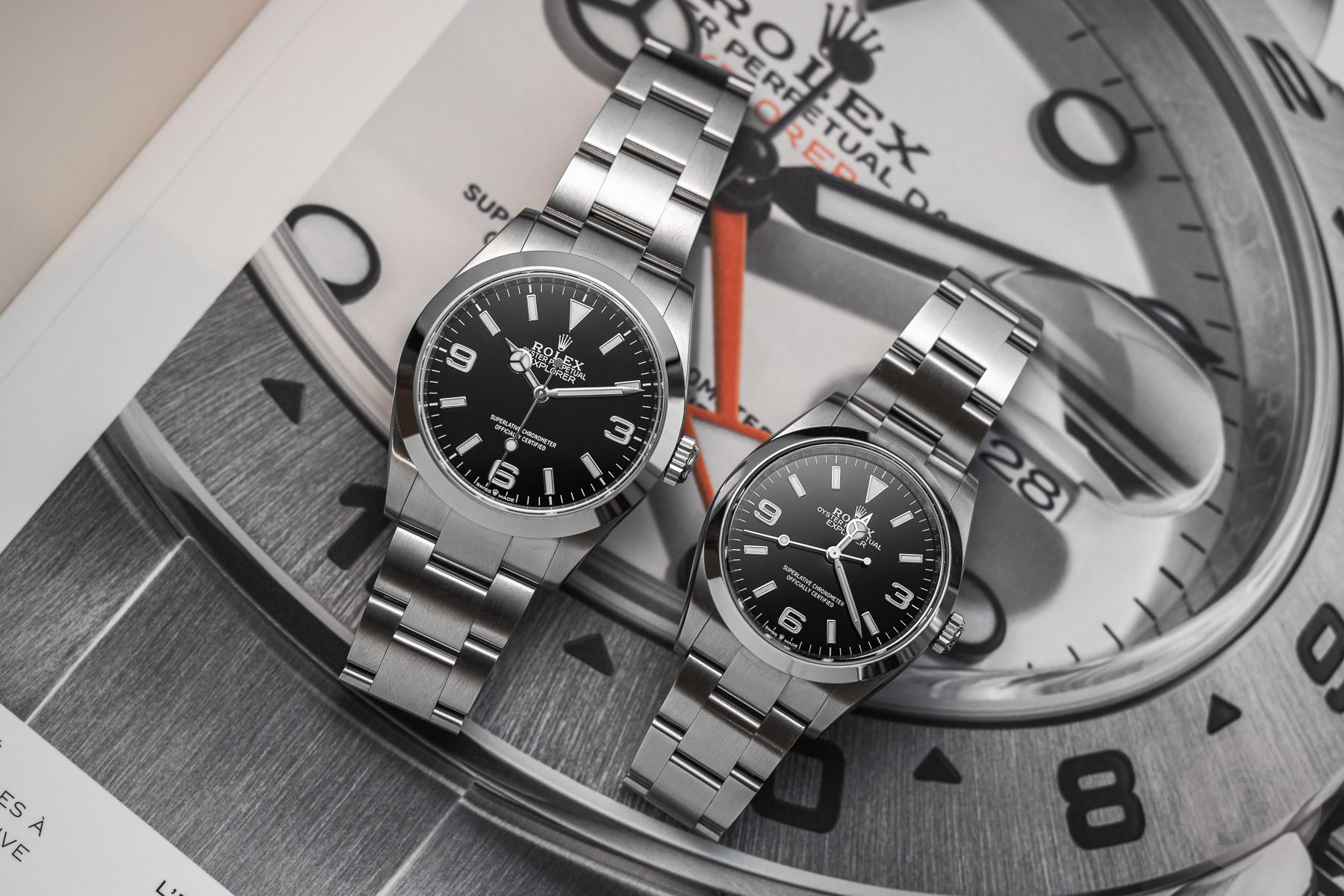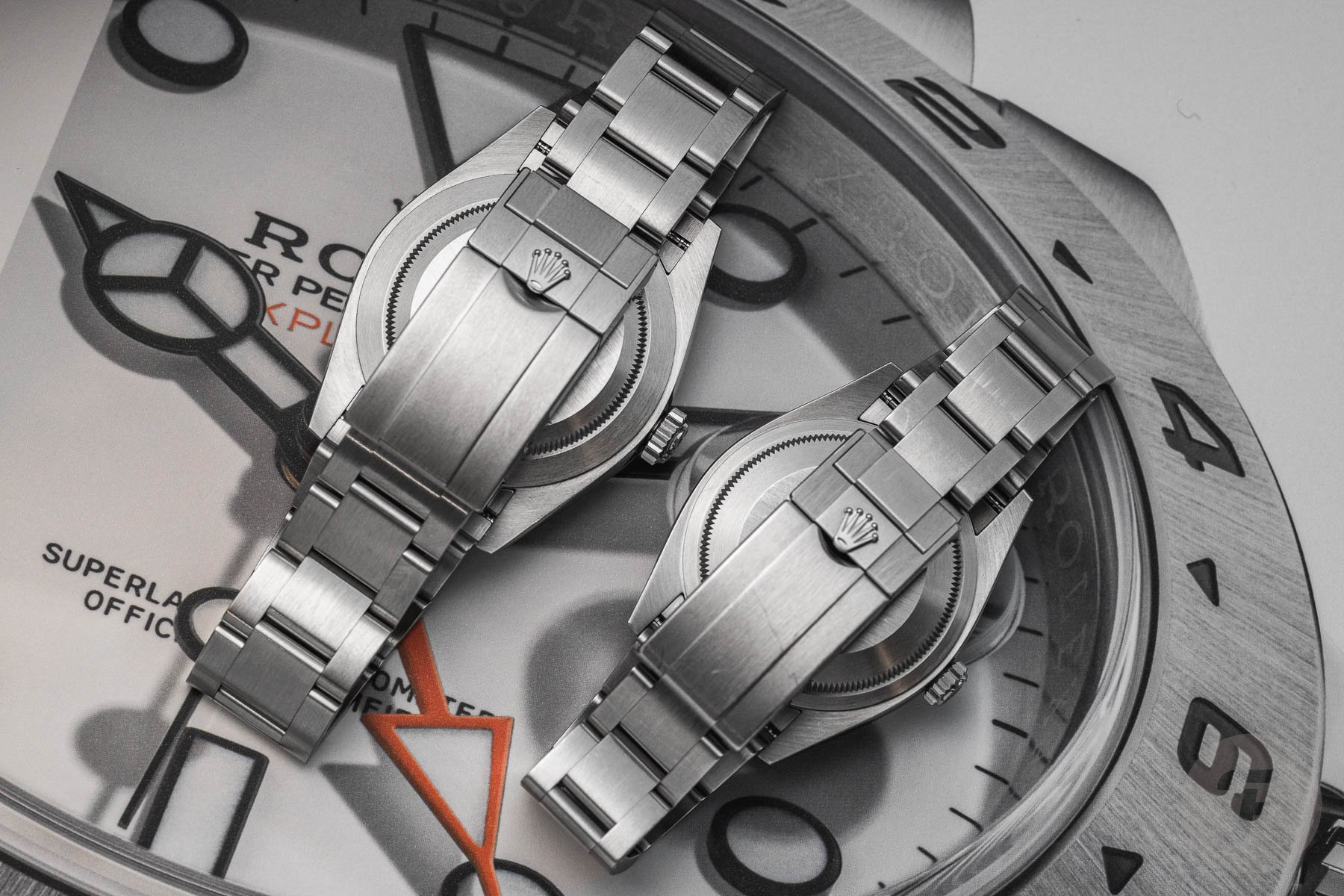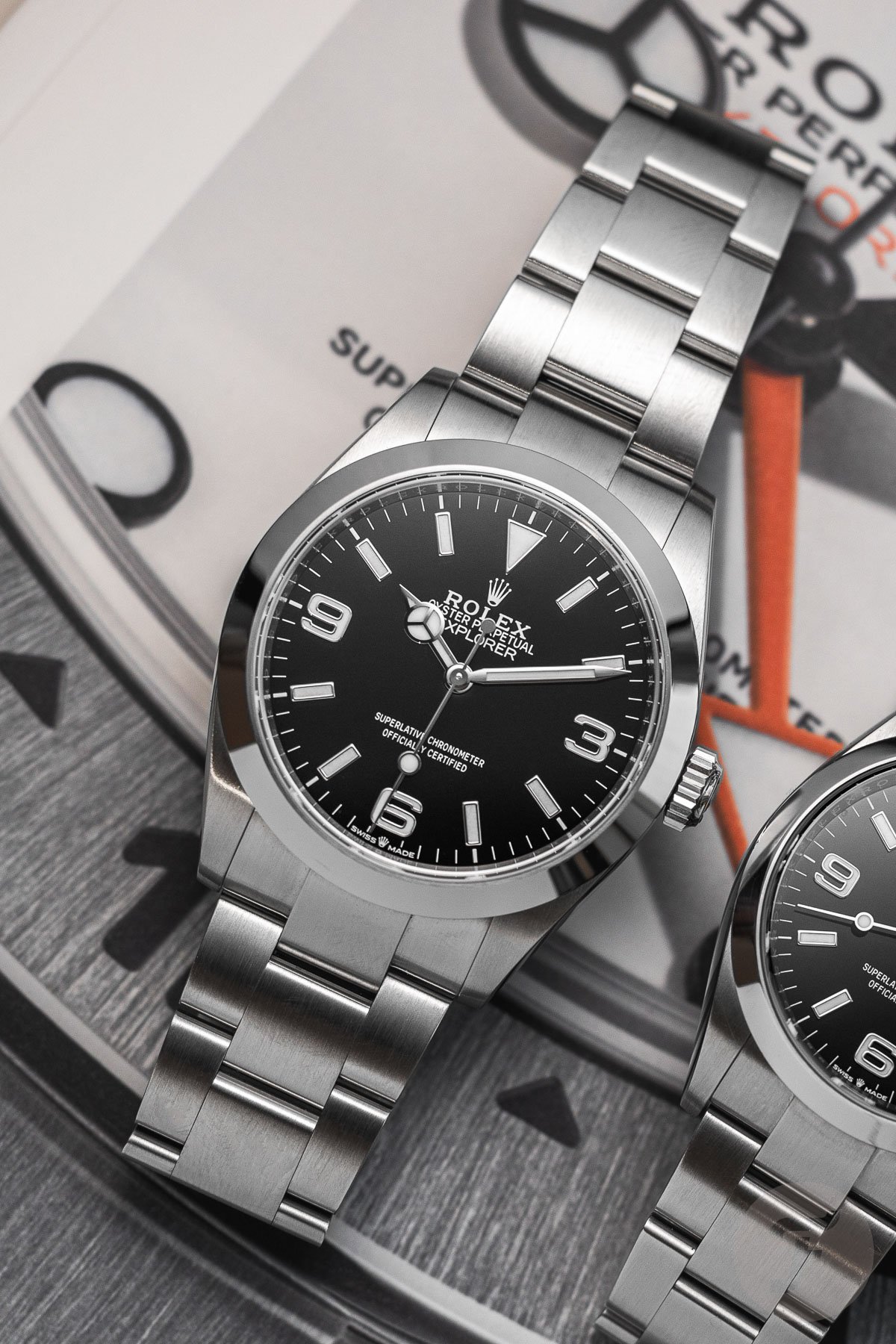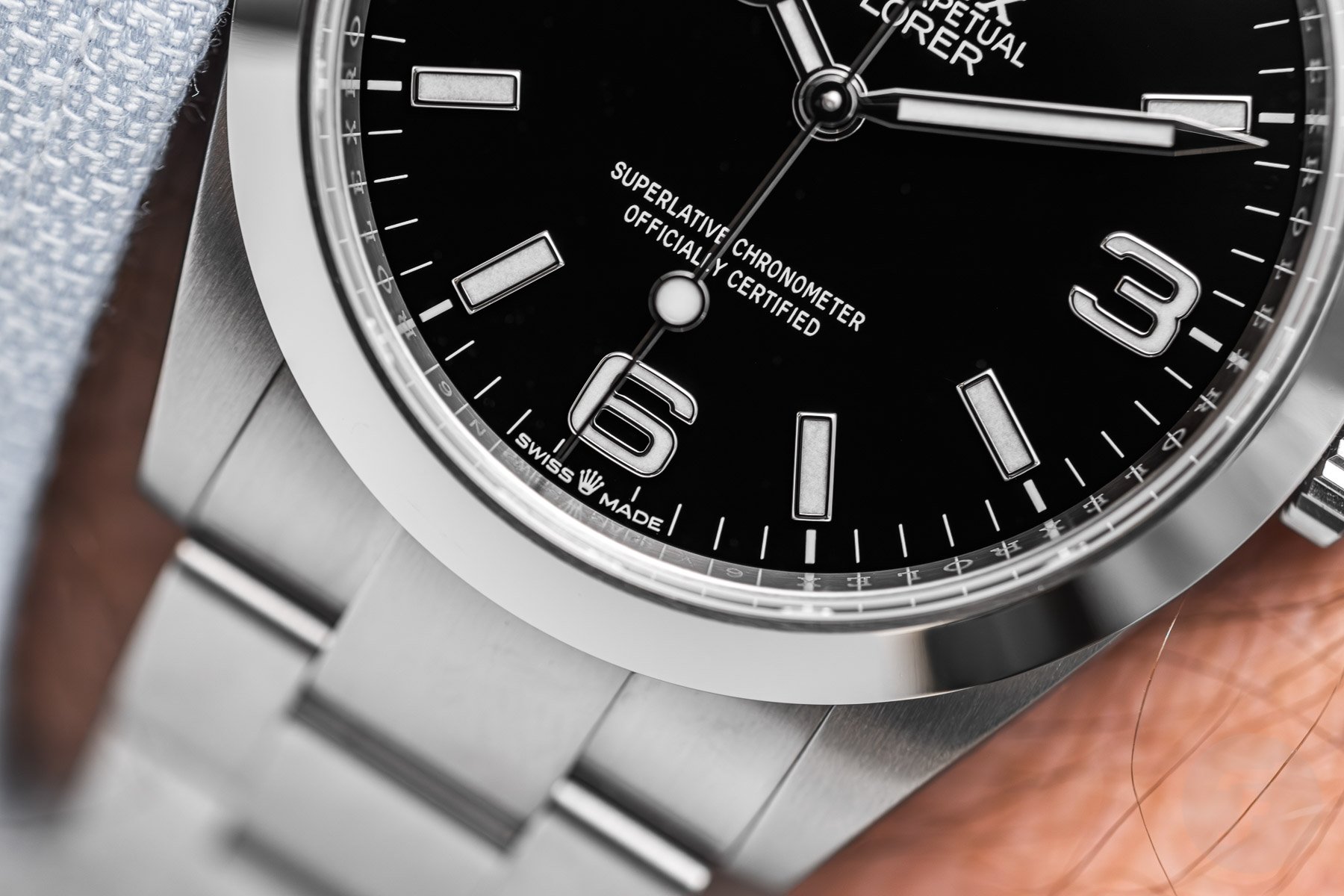The Rolex Explorer 36 and Explorer 40 — The Best All-Arounders From The Crown?
Woop-woop, that’s the sound of the diameter police! “An Explorer 40 was introduced during Watches and Wonders — what a crime against humanity!” The Rolex Explorer is a classic in its 36mm form, and it has also been available in a 39mm version. The latter was discontinued a few years ago, and Rolex has brought it back with an extra millimeter on top and some other small changes. We had the opportunity to have a closer look at the new Rolex Explorer 40 and compare it to the “classic” 36mm Explorer.
The Rolex Explorer
Ever since I developed an interest in watches, the Rolex Explorer has been one that I respect a lot. It’s a no-nonsense sports Rolex, a tool or field watch that could be anyone’s daily wearer for the rest of their life. The Explorer has withstood the test of time, as many other Rolex models have done, but it’s an incredibly versatile watch too. You can wear it with a suit as well as with your most casual outfit. It will not offend anyone, but on the other hand, others may perceive it as a little bit boring. It’s simply a very neutral watch. To me, the Explorer might just be the best all-arounder in the Rolex collection.
The Rolex Explorer model has been around for 70 years now and has only received a few design changes over the years. The early 1950s must have been incredibly exciting for Rolex as its catalog of sports watches filled up rapidly with the Explorer, Submariner, and GMT-Master. Before I take a closer look at the new Explorer 40, let’s have a quick look at the Explorer since 1953 — a no-nonsense tool watch with proper water resistance and a 36mm case.
Rolex Explorer 6350
In 1953, Rolex introduced the Explorer ref. 6350. The typical 3-6-9 dial layout wasn’t new, though, as Rolex had some similar-looking references in the years before, such as the ref. 6098 and ref. 6298. The Rolex ref. 6350, however, was the first watch that said “Explorer” on the dial. The similar-looking 6150 (see image above) came out around the same time but had a “Precision” movement rather than a chronometer-certified one.
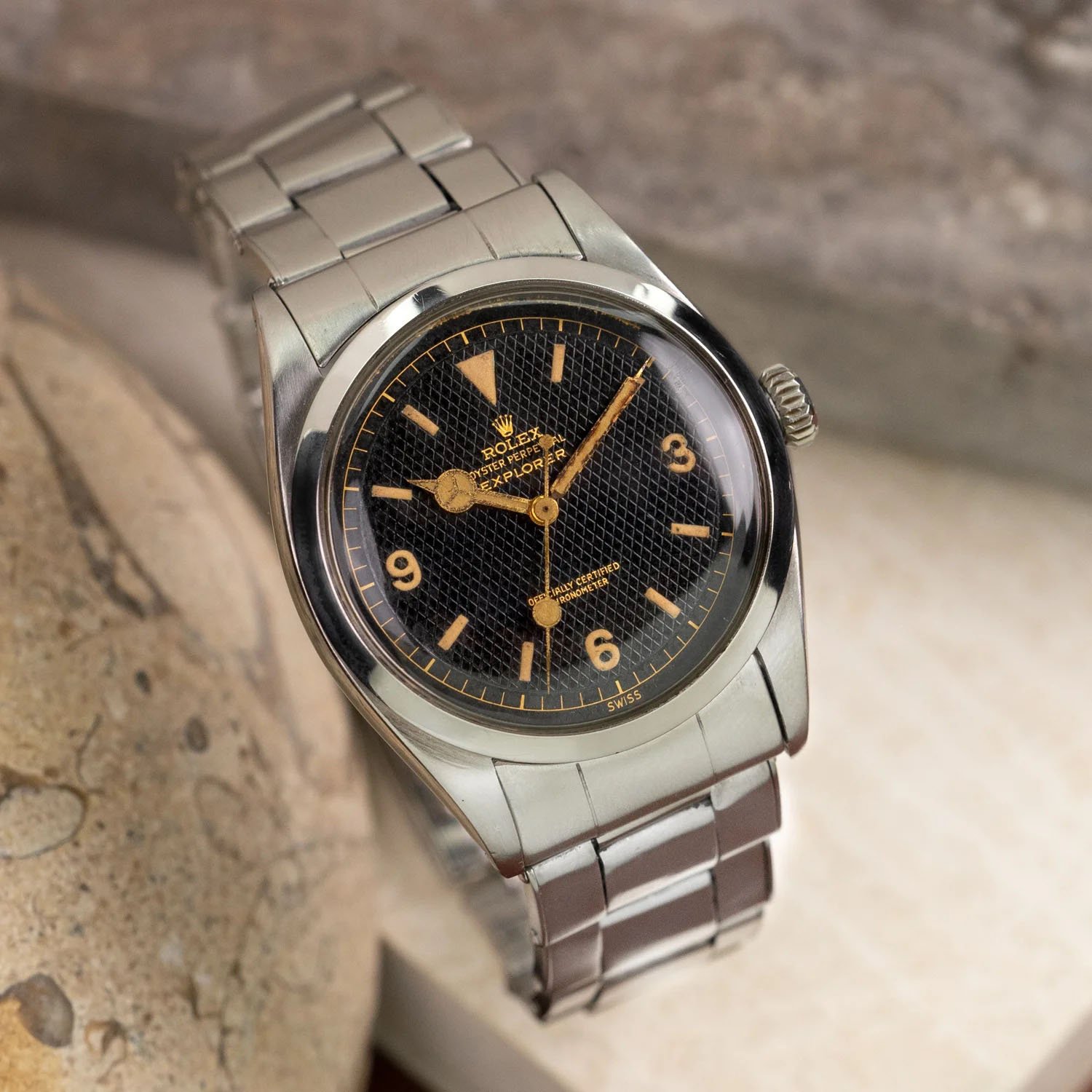
The first Rolex Explorer, reference 6350, pictured here with a honeycomb dial — Image: Amsterdam Vintage Watches
Both references had the same caliber A296 inside, though. According to Amsterdam Vintage Watches, a very small number of ref. 6150 models also had the word “Explorer” on the dial. However, in general, we should say that the ref. 6350 was the first real Explorer watch.
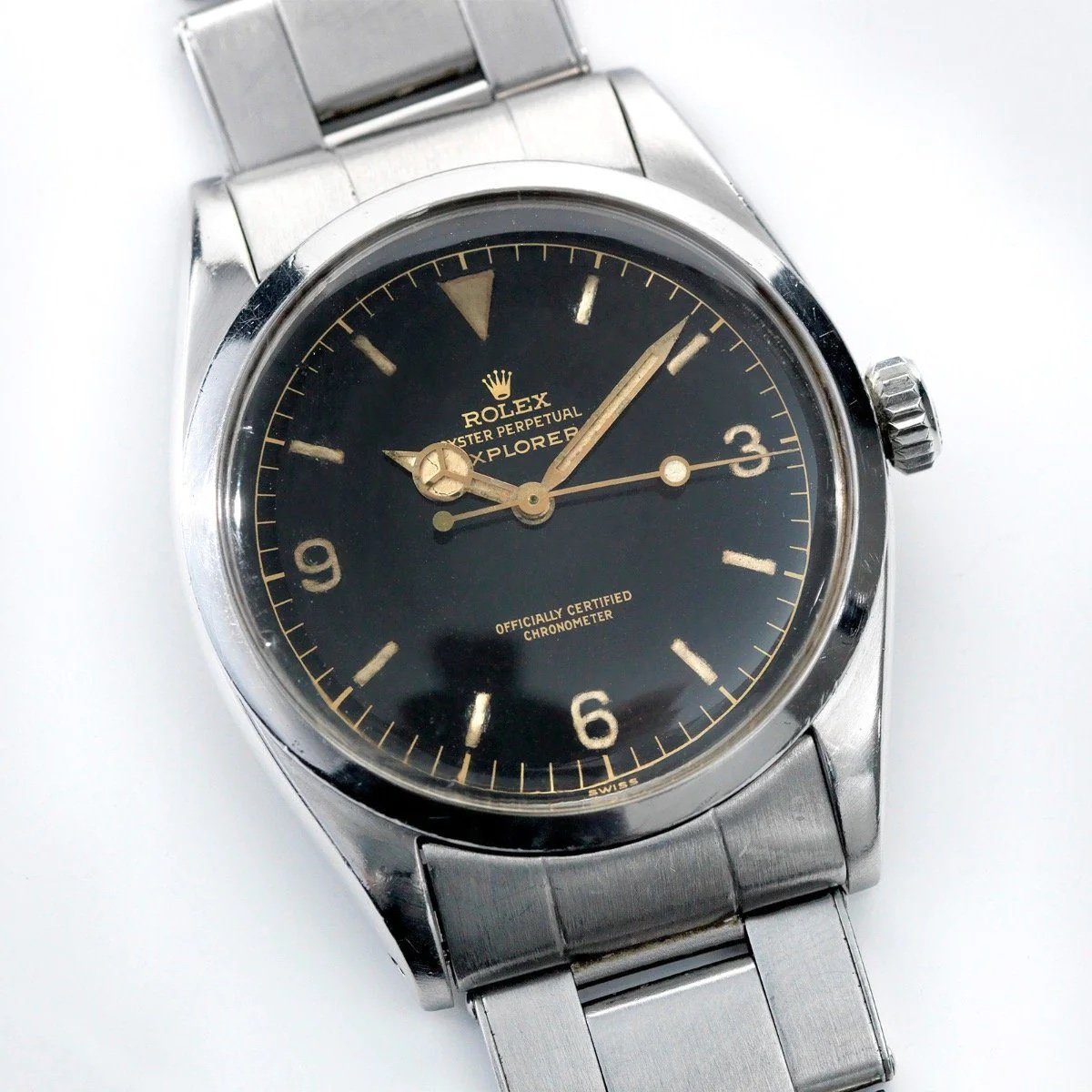
Rolex Explorer 6610 — Image: Bulang & Sons
Rolex Explorer 6610
The 6350 was replaced by the 6610, which was in production from 1955 to 1959. Aside from the white-dial “Albino” version that can be found in the ref. 6610 series, the main differences between the 6610s produced in this period are in the printing on the dial. Most Explorer 6610s used the Rolex caliber 1030, an “officially certified chronometer” movement that could also be found in early Submariners, for example.
Rolex Explorer 1016
I don’t want to make this a complete historical overview of Rolex Explorer references, but I think it is good to know that ref. 1016 was in production for a long time. The Rolex Explorer 1016 remained in the catalog from 1960 to 1989, and it was the first to have the text “Superlative Chronometer Officially Certified” printed on the dial. Some very early references still lacked the “Superlative” designation, an inherited trait from the previous ref. 6610.
On this website, you will find all the different variations of the Explorer 1016 from its nearly 30-year lifespan. This long-standing model used different iterations of the 1570 movement, the last of which featured hacking seconds. The ref. 1016 comes very close to the Explorer in the Rolex catalog today.
Rolex Explorer 14270
In 1989 came the Rolex Explorer 14270, which had a sapphire crystal, applied 3-6-9 numerals, and the new caliber 3000. Very small changes appeared in this 14270 reference that was in production till 2001, including the transition from tritium to Super-LumiNova and the removal of the lug holes. I especially enjoyed that latter “feature” a lot (and still do on some of my older Rolex watches) as it makes it very easy to remove the bracelet or strap.
Rolex Explorer 114270
In 2001, Rolex introduced the Explorer 114270, a nearly unchanged upgrade from the previous ref. 14270. What did change, however, was the movement inside and the use of solid end links (SELs) rather than folded ones. Although there was some charm to the rattling sound of the bracelet on earlier models, the SELs can be seen as a necessary upgrade. The Rolex caliber 3130 replaced the 3000 that powered the previous reference. Caliber 3130 had a balance bridge instead of a balance cock for more stability. Additionally, the newer movement used a hairspring with a Breguet overcoil.
Rolex Explorer 214270 — The 36mm version gets discontinued
In 2010, the 36mm Explorer suddenly disappeared and made way for a larger version of the watch, the Explorer 214270. It was a 39mm version of the well-known Explorer to fit the demand at the time for larger watches. The first iteration was a bit awkward as it had hands that were clearly too short. The dial, however, had a matte finish, and the applied 3-6-9 numerals were solid white gold without any Super-LumiNova. The Explorer 214270 was fitted with Rolex’s caliber 3132. This movement featured all of the latest Rolex innovations, such as a Parachrom hairspring. The Explorer 214270 saw an update in 2016, receiving a new, better-fitting set of hands and lume-fulled numerals.
Rolex Explorer 124270 and 124273 — Return of the 36mm size
In 2021, the Explorer 39 was discontinued and replaced by the current Rolex Explorer 124270. This marked the return to a 36mm diameter, the classic size for this watch. In addition, Rolex introduced a two-tone/bicolor version of the Explorer. This was a bold move considering that, for a long time, the Explorer was regarded as a tool/field watch in its purest form. The new Explorer 36 uses Rolex’s caliber 3230, featuring the brand’s Chronergy Escapement and a 70-hour power reserve. Interestingly enough, the lug spacing of this new Explorer 36 is 19mm, whereas it used to be 20mm for both the 36mm and 39mm versions.
Until this year, I believed Rolex had concluded that 36mm was the perfect size for the Explorer. And perhaps it is indeed since that was the Explorer’s diameter for most of its life since 1953. I’ve debated many times whether I should buy the 39mm version as that’s the one that suits my wrist best. My wife has the 36mm Explorer 114270, and it somehow wears (or appears) smaller on my wrist than my 36mm Day-Date and Datejust. Its black dial (and perhaps its smooth bezel) might make the Explorer seem smaller than those other watches. However, I never committed to buying the Rolex Explorer 214270. Then in 2023, Rolex surprised everyone by introducing an additional Explorer to the collection. Meet the Explorer 40, reference 224270.
Rolex Explorer 224270
Now, I am not at all a fan of oversized watches, especially when they don’t serve a purpose, but I am an advocate of buying the right size for your wrist. The diameter police are everywhere, though, dictating that watches shouldn’t be larger than the new “sweet spot” of XXmm (ranging anywhere from 35mm to 39mm). Quite frankly, I don’t believe in such statements. You should buy a watch that fits you properly rather than blindly conforming to certain specifications.
As you can see in the picture above, the new Explorer 40 suits my 18.5cm (7.28″) wrist perfectly. Rolex increased the size to 40mm without losing the beautiful shape of the watch. It’s still an elegant model, now made available (again) for those with larger wrists. The glossy black dial with applied 3-6-9 numerals and the Mercedes hour hand make it the typical Rolex Explorer watch.
The perfect pair
I gave the reintroduction of the Explorer in a larger size some thought, and at first, it baffled me why Rolex came back with a 40mm watch. The Explorer 39mm was great as well and very suitable for larger wrists. Rolex could have just restarted the production of the Explorer 39; I assume all the drawings and files for the machines are still somewhere in the brand’s database. But not much later, it struck me that 36mm and 39mm are perhaps a bit too close to each other. With a 40mm diameter, Rolex can really underline the difference between these two sizes. The 40mm will work on large(r) wrists like mine but also on wrists even (much) larger. So Rolex just ensured that virtually everyone could wear an Explorer, regardless of their wrist size.
Everything is just a bit bigger
With its 21mm lug spacing and glossy black dial, the Explorer 40 is somewhat different from the Explorer 39. And compared to the Explorer 36, everything is just a tad larger. Some say that it affects the original design, which is true, of course. But it’s still unmistakably a Rolex Explorer, this time for large(r) wrists. For me, it would be a question of getting the discontinued Explorer 39 ref. 214270 or the latest Explorer 40 ref. 224270. The Explorer 36, despite being incredibly beautiful in its original size, is not for me, that much is clear.
Some thoughts on the new Rolex Explorer 40
Rolex made a smart move by adding the Explorer 40 to the collection. Reference 224270 is a good alternative for those who find the Explorer 124270 too small for their wrist. Purists can argue that the original size is 36mm, but that doesn’t mean it always looks right on one’s wrist, at least not in the perception of the wearer. If the Explorer 36 suits and fits you, you’re in luck because it also saves you €400. The retail price of the Explorer 36 is €7,250, while the Explorer 40 has a price tag of €7,650.
We discussed the price difference here because €100 per extra millimeter is a bit of a weird one. If Rolex had made no difference in the price, it would’ve perhaps raised some eyebrows because it would mean that the extra material has no value. But €400 for a little bit more 904L steel is perhaps a bit much as well. That said, if you can get one of these watches at retail, nobody will complain about the difference anyway.
As I wrote above, the Explorer 40 is a nicely sized watch for my wrist. For a tool watch, the matte dial of the Explorer 39 might be a bit more to my taste, but I am pretty sure I can live with a glossy one. At retail, I would take the Explorer 40, and if I wanted one today but it was simply not available, I would probably spend a little bit over the current retail for the discontinued Explorer 39.
For more information on the current Explorer lineup, visit Rolex online.

